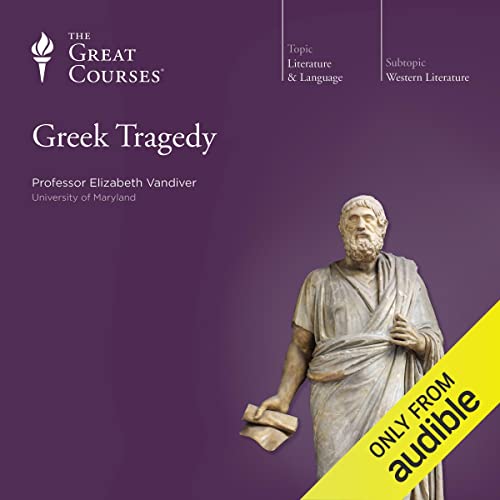
by Elizabeth Vandiver
Lecture in English, 13 hours — category ancient history
Narrated by Elizabeth Vandiver — published by The Great Courses in 2013
I have not read this book yet.
Description from the publisher:
Greek tragedy was a dramatic form that flourished for less than a full century. And yet it remains vibrant, alive, and productive today. And the form's masterpieces help us - as perhaps they helped their original audiences - grasp a fuller sense of the terror and wonder of life. Professor Vandiver has designed these 24 rich and rewarding lectures to give you a full overview of Greek tragedy, both in its original setting and as a lasting contribution to the artistic exploration of the human condition. You'll learn to see Greek tragedy as a genre in its cultural context. What is tragedy's deeper historical background? Did it grow out of rituals honoring the god Dionysus, as is so often said? How did Aeschylus, Sophocles, and Euripides each make unique contributions to tragedy's expressive power?
You'll also uncover what scholarship can reveal about the actual performance of Greek tragedy, including its physical and ritual settings, actors and acting methods, conventions of staging and stagecraft, and even how productions were financed. And with this solid background in place, you'll explore a broad group of tragedies in close detail. In particular, you'll see how individual tragedies used traditional myths (often tales from the Trojan War), and what Aeschylus, Sophocles, or Euripides intended to accomplish by changing or adding to the basic story. You'll examine what certain tragedies imply about the world of 5th-century Athens and the importance, in turn, of the cultural background for explaining those tragedies.